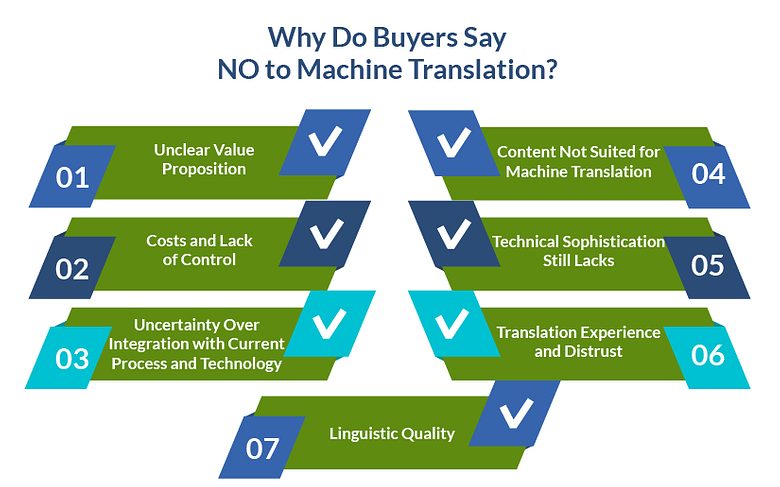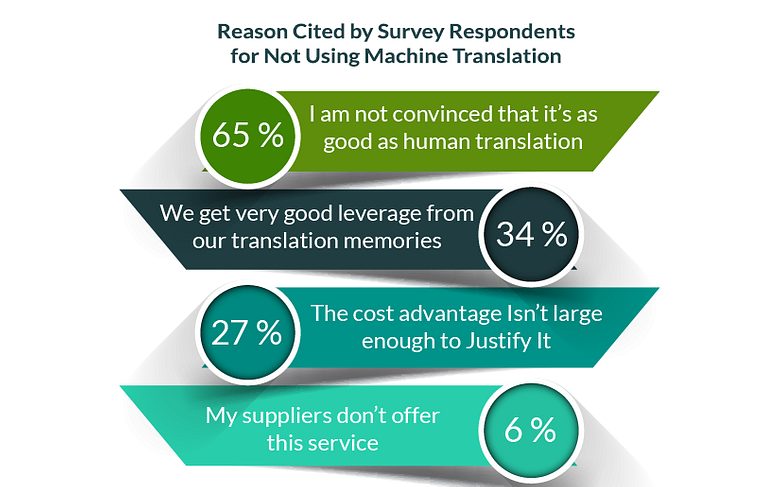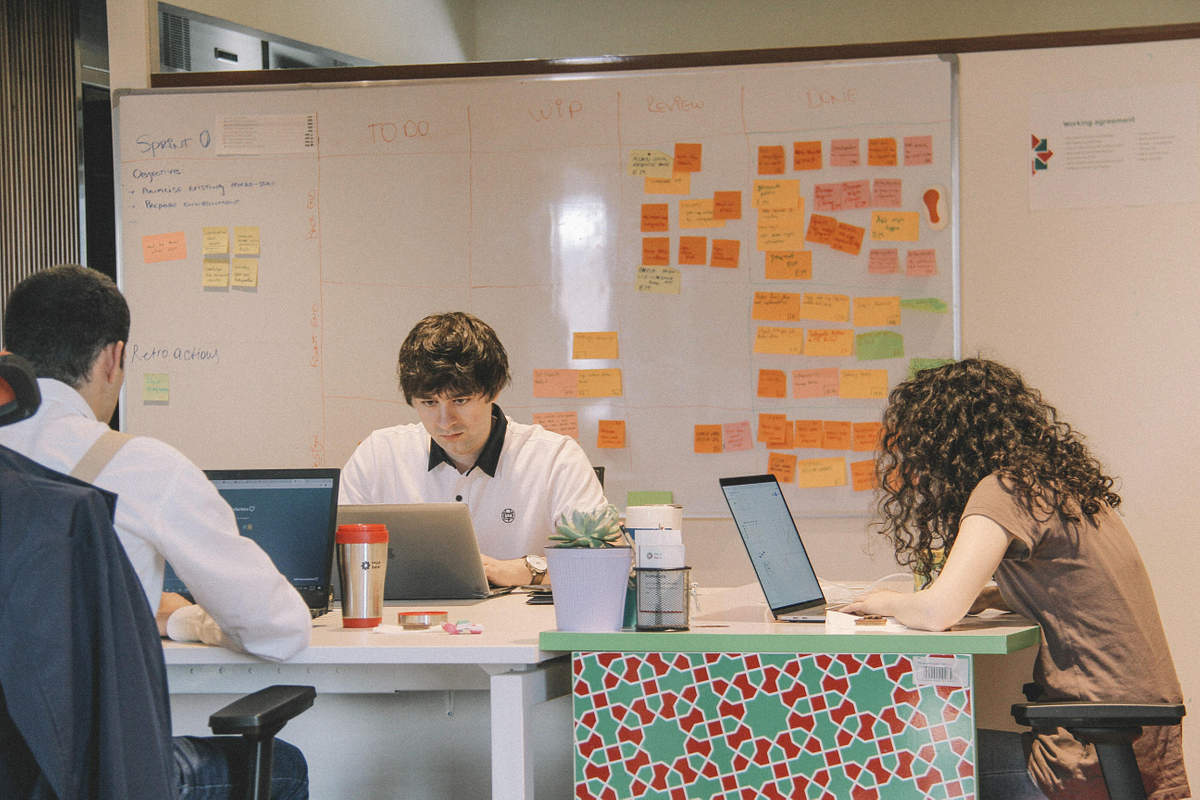
Not all buyers buy into machine translation

With an increase in language needs and budgets getting tighter, it seems that machine translation (MT) will soon become part of the solution for some types of content. But, this form of automated translation still evokes distrust in many buyers. In the CSA’s 2013 survey, 92 of 239 buyers were against MT.

Why do buyers say NO to machine translation?
The CSA report found that there is one particularly common reason as to why buyers shun MT. They aren’t convinced that machine translation is as good as the human touch. The survey identified several common issues that keep buyers from jumping up and down for machine translation.
1. Unclear value proposition
Some buyers claim to be unsure as to how cost-effective this form of translation is, particularly when compared to the human translation process. The buyers are worried that they’ll need to make a big investment and then still pay out for post-edited machine translation (PEMT). Other buyers report that they don’t have enough information to make a decision, whilst others are confused by the costs and the different terms of service.
2. Costs and lack of control
Some buyers report being worried about not having control over the MT process, increasing their need to rely on LSPs and spending more just to manage the software.
3. Uncertainty over integration with current process and technology
There are some buyers that are concerned about integrating MT with the language technology and processes they already have in place.
4. Content not suited for machine translation
Those surveyed claimed that their creative content, such as marketing materials, may not be suitable for MT, or they worry that their content is not clean enough. To ensure a smooth MT, the source content must be plain and in a context-neutral language. Moreover, creating source content ready for machine translation means extra investment in terms of buyers training their content writers.
5. Technical sophistication still lacks
The localisation maturity of LPSs also influences buyer’s decisions and their attitude towards MT. For example, LSPs still in the initial phases of localisation maturity, which is Reactive and Repeatable, are not yet ready for machine translation. On the other hand, mature organisations are leading the industry with technology.
6. Translation experience and distrust
While the survey notes a parallel between a company’s maturity and MT usage, it was also noted that the experience of some companies tends to affect their attitude toward the technology. Two-thirds of respondents reportedly don’t want to use MT and those respondents have been involved in translation for a period of five to ten years.
7. Linguistic Quality
Fears over linguist quality continue to influence buyer’s decisions. LSPs fear that technology will replace them while buyers insist that machines will never “get” the intricacies of a language like a human can.
What’s the alternative?
With the demand to translate websites in 20 or more languages at times, many companies are being forced toward MT, despite their reservations. The solution, then, perhaps, is to share translation memories across suppliers to ensure consistency along with the options of crowd-sourcing. Interestingly, 53% of respondents told the CSA they do plan to use MT in the future. So, it may not appeal, but it just may have to.
About Wordminds
Wordminds is a close-knit team of language experts – professional translators, project managers, localisation engineers and business visionaries who work closely with global clients, helping them connect with their international audience. Wordminds works with over 3,000 language specialists and subject-matter experts to enable companies to overcome cultural and language barriers, helping them build trust and create long-lasting business and human relationships. Fully certified under ISO 9001 and ISO 17100, the company believes in continuous improvement and so stands at the forefront of new language-technology implementation, smart collaboration and excellent customer service. Find out more about Wordminds.
Join our Newsletter
Stay up to date with the latest articles, news and translation insights


